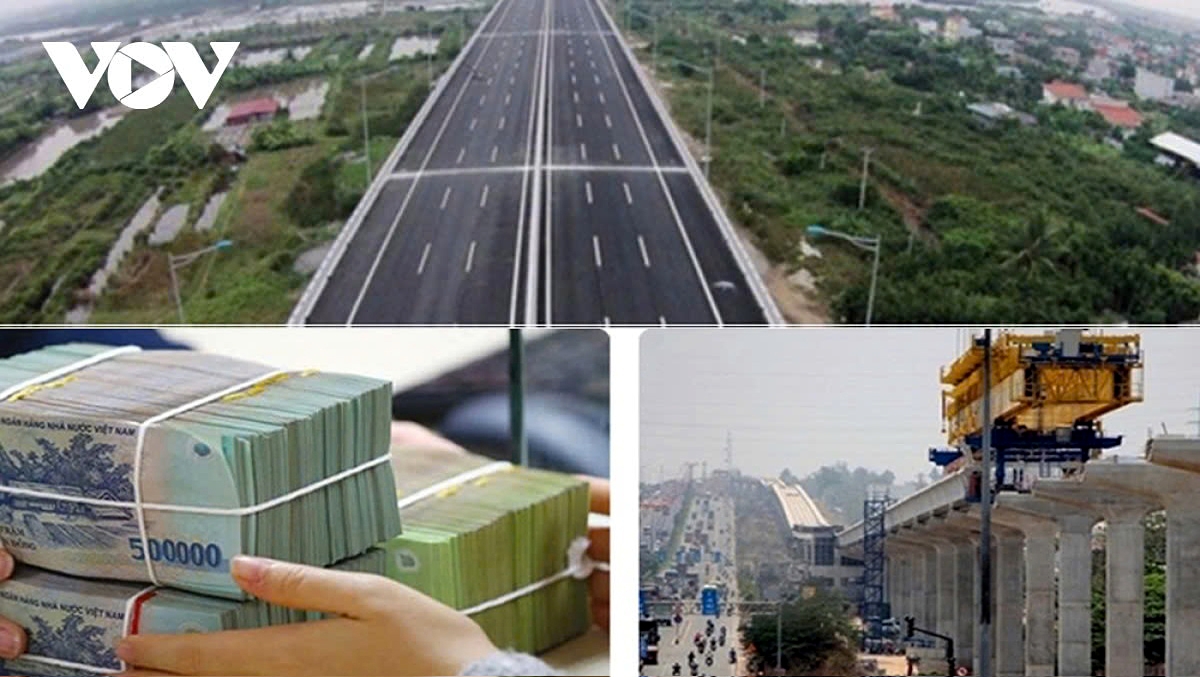Public investment disbursement remains slow going
Society – Economy - Ngày đăng : 10:31, 22/12/2024
Disbursement plan not achievable

Early this year, the government set a goal to achieve at least 95% disbursement of public investment capital throughout 2024. However, the Ministry of Finance reported that although the year is nearing its end, the disbursement rate still remains very low. As of November, the disbursement for foreign loan-funded public investment capital stood at only 39.06% of the adjusted plan.
Of the 10 ministries and sectors, only the Ministry of Natural Resources and Environment and the Ministry of Transport have disbursed more than 50% of their capital plan. Most notably, four ministries - Ministry of and Training, Ministry of Construction, Ministry of Labour, Invalids, and Social Affairs, and Ministry of Health - have yet to disburse their foreign loan investment capital plan for 2024.
This slow pace can primarily be attributed to several factors, including insufficient attention to disbursement, delayed bidding, lengthy contract signings, and multiple revisions of documents. Furthermore, some projects have had to undergo investment policy adjustments or loan agreement amendments.
Statistics compiled by the Ministry of Finance indicate that 15 projects or sub-projects have proposed investment policy adjustments this year. Some projects with extended procedures include the Ben Luc-Long Thanh expressway project, funded by the Japan International Cooperation Agency (JICA), the Ben Tre water management project, also funded by JICA, and the construction of the Hanoi University of Pharmacy, funded by the Republic of Korea.
Consequences of slow disbursement
Nguyen Minh Tan, deputy director of the State Budget Department under the Ministry of Finance, said that the delay in disbursement not only impacts credibility with donors, but also causes losses to the state budget due to issues such as interest and withdrawal fees.
“There must be solutions to address this issue, including penalties for unrealistic budgeting, return of unused funds, and slow procedures that delay disbursements,” said the official.
At the freshly concluded National Assembly session, lawmakers expressed concerns about slow disbursement, noting that many sources of capital are being extended, reallocated, or delayed, thereby affecting project efficiency and wasting opportunities.
Lawmaker Tran Kim Yen of Ho Chi Minh City emphasised that slow disbursement directly impacts economic growth and the efficient use of national resources.
“Obstacles stemming from complicated procedures not only delay project progress but also reduce the effectiveness of investment capital,” said Yen.
Solutions suggested
To address the issue of slow disbursement, experts have suggested that the government move to increase discipline and decentralise responsibilities for disbursement, coupled with stronger inspection, supervision, and power control.
Legal sanctions should be strictly applied to investors, project management boards, and individuals who intentionally cause delays or impede capital allocation and disbursement, they suggested.
Furthermore, they said that there should be prompt replacement of ineffective officials and staff who delay or avoid responsibilities, obstruct tasks, and engage in corruption.
Strict actions should be taken against negative behaviours in public investment management, recommended experts.
